 DISCUSSION: What is a work? John Dante Prevedini leads a discussion about The performing artist as co-creator, including contributions from Halida Dinova, Yekaterina Lebedeva, Béla Hartmann, David Arditti and Stephen Francis Vasta.
DISCUSSION: What is a work? John Dante Prevedini leads a discussion about The performing artist as co-creator, including contributions from Halida Dinova, Yekaterina Lebedeva, Béla Hartmann, David Arditti and Stephen Francis Vasta.
 DISCUSSION: John Dante Prevedini leads a discussion about Composers, individuals or collective?, including contributions from David Arditti, Halida Dinova, Robert McCarney and Jane Stanley.
DISCUSSION: John Dante Prevedini leads a discussion about Composers, individuals or collective?, including contributions from David Arditti, Halida Dinova, Robert McCarney and Jane Stanley.
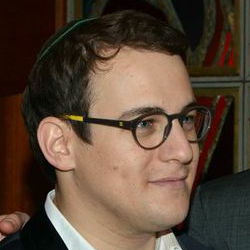 SPONSORED: Ensemble. Melting Rhapsody - Malcolm Miller enjoys Jack Liebeck and Danny Driver's 'Hebrew Melody' recital, plus a recital by David Aaron Carpenter.
SPONSORED: Ensemble. Melting Rhapsody - Malcolm Miller enjoys Jack Liebeck and Danny Driver's 'Hebrew Melody' recital, plus a recital by David Aaron Carpenter.
All sponsored features >>
Catching Up
GIUSEPPE PENNISI attends the final two concerts of the Musica d'Amare Festival in Rome
With the end of most of the restrictions related to the pandemic, numerous musical activities have resumed, as can be seen from reading this daily magazine. Your chroniqueur, like the others in the trade, must be selective. Therefore, he did not follow as much as he would have liked the Musica d'Amare (Music to Love) Festival, organized by the Accademia Filarmonica Romana, in the beautiful gardens of Casina Vagnuzzi, next to Piazza del Popolo and Villa Borghese, that is, in the heart of Rome. It is a low cost but high quality festival that focuses on performances of works rarely played and that has a strong international posture as it is organized in collaboration with the foreign academies and cultural institutes present in Rome. Thus, it offers a panorama of novelties and first performances for Italy.
From 13 June to 1 July 2021, with the view of catching up, there were two concerts per evening. The first at 8pm in the small but cozy Sala Casella, the second at 9.30 pm in the charming open-air theatre in the gardens.
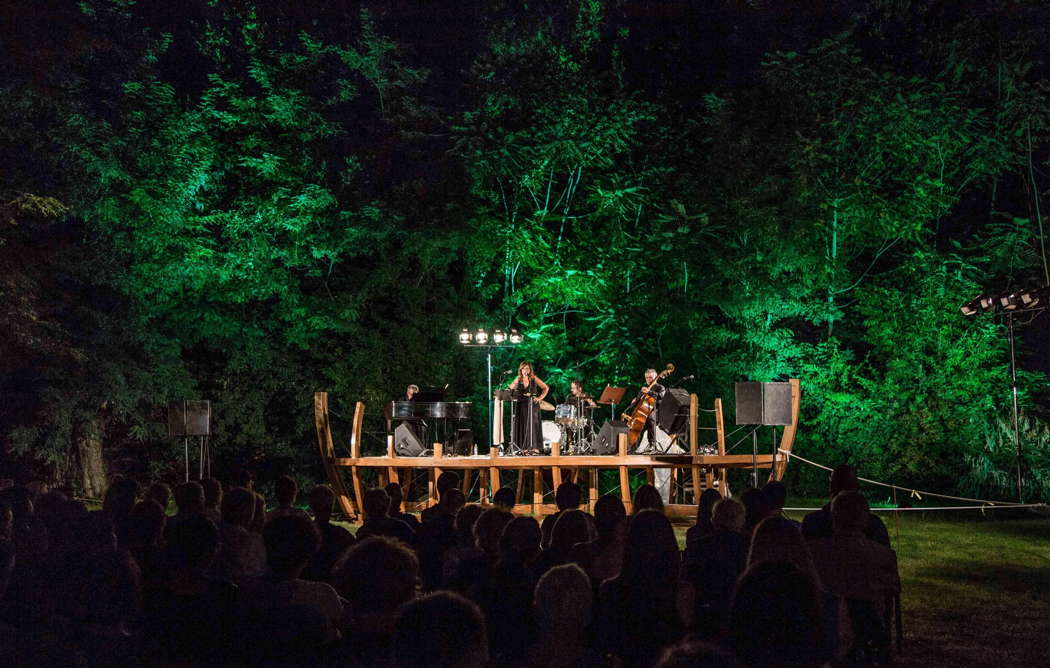
A concert in the Giardini della Filarmonica. Photo © 2018 Max Pucciariello
Between the first and second concert, those who wanted could have a quick dinner in a self-service restaurant organized in the gardens with Italian and middle eastern dishes at a modest cost of about ten euros per meal.
I was at the final two concerts on 1 July. The first was entitled Foreign Homes and featured the ARS Lituanica Trio - Dalia Dėdinskaitė, violin, Gleb Pyšniak, cello and Tadas Motiečius, accordion.
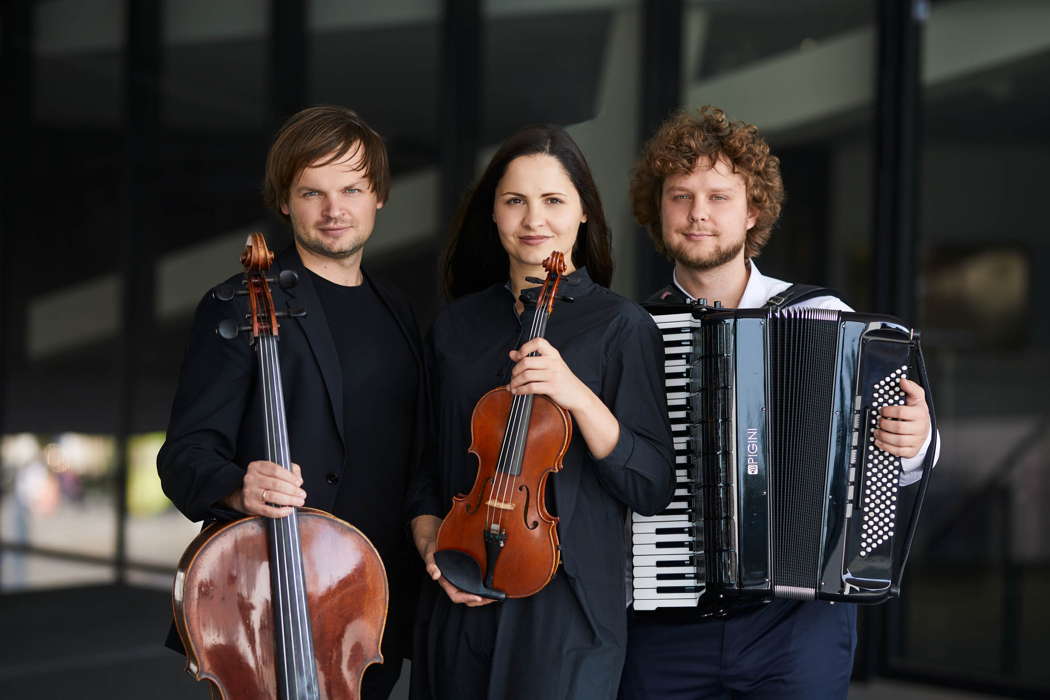
The ARS Lituanica Trio in 2020
It was a tribute to the musical heritage of Lithuanian Jews, called Litvak. In the early 1300s, Grand Duke Gediminas invited Jews from all over Europe to the Grand Duchy of Lithuania. Thousands of persecuted Jews found here a safe haven for the growth of their culture and religion. When Napoleon arrived in Lithuania in 1812, he nicknamed Vilnius the 'Northern European Jerusalem'. Over the course of six hundred years, Lithuanian Jews were one of the pillars of the development of the country as well as of its neighbours, until the Holocaust tragically wiped out 95% of the Jewish population living in the country. Nevertheless, to date the descendants of the Litvak continue to play a leading role. One of the most significant contributions is in the musical heritage. Musicians and composers such as Leopold Godowsky, Jascha Heifetz, Aaron Copland, David Geringas, the Livschitz brothers, Julian Rachlin and Anatolijus Šenderovas are of Lithuanian origin or were born and raised in Lithuania. The idea of the concert is an attempt to unite past and present, following in the footsteps of Litvak's musical heritage.
The concert included eight musical numbers transcribed for the Trio's performance. Some are of well-known American composers of Lithuanian ancestry - Copland, Gershwin, Goodman and Heifetz - others are the Russian Cui (born in Vilnius) and the Mexican Manuel Ponce. The Lithuanian Anatolyus Sheenderovas, who was born in 1945 and who therefore escaped the Holocaust, stands out. Rather than commenting on the individual numbers – the adaptation of Gershwin's well-known Summertime was splendid - it is important to note how the three young performers were able to bring back the climate and the atmosphere of Jewish culture of the first half of the twentieth century. The trio made one feel, for example, that one could dance some numbers that were not conceived as such. It was a great success; when asked for an encore, the trio responded with a number by Benny Goodman; it was full of beat and rhythm.
In the second concert, a well-known and appreciated ensemble, I Solisti Aquilani, performed Vivaldi's Four Seasons: the solo violinist was Daniele Orlando.
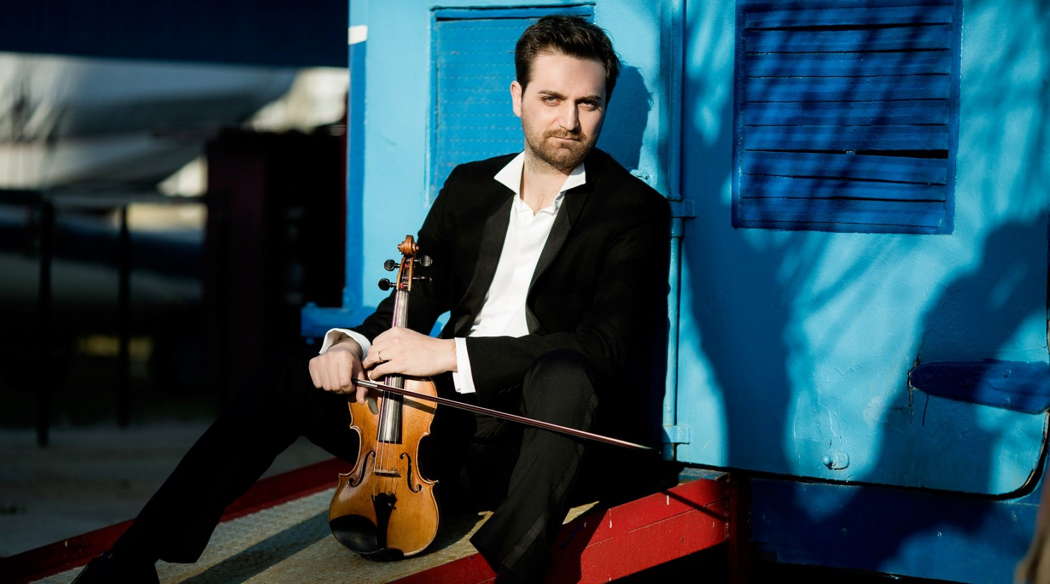
Daniele Orlando. Photo © Daniele Cruciani
It was not a philological interpretation such as those I listened to as a high school student in the concerts of the ensemble headed by Renato Fasano, one of the few (with Casella, Dallapiccola and Malipiero) who after decades of Romanticism and verismo, fought to make the public aware of the musical wonders of the seventeenth and eighteenth centuries. It was a new and highly dramatic reading of which there is already a CD available on the Spotify platform, from which it has been downloaded 4.5 million times - a huge success. The interpretative key goes beyond traditional executive practice: it is a reflection on the role of man with respect to the environment: 'an invitation to a renewed respect for the nature that hosts us and that we have devastated for too long', as the musicians themselves told the audience before playing. Inspired by this reading are the poems that the Italian authors Dacia Maraini and Donatella Di Pietrantonio wanted to dedicate to the Solisti Aquilani, a sort of 'contemporary version' of the Sonnets (apparently written by Vivaldi himself) that in the eighteenth century were printed together with The Four Seasons. This was an engrossing and exciting reading, not to be compared, however, with the philological ones. They are two totally different concepts.
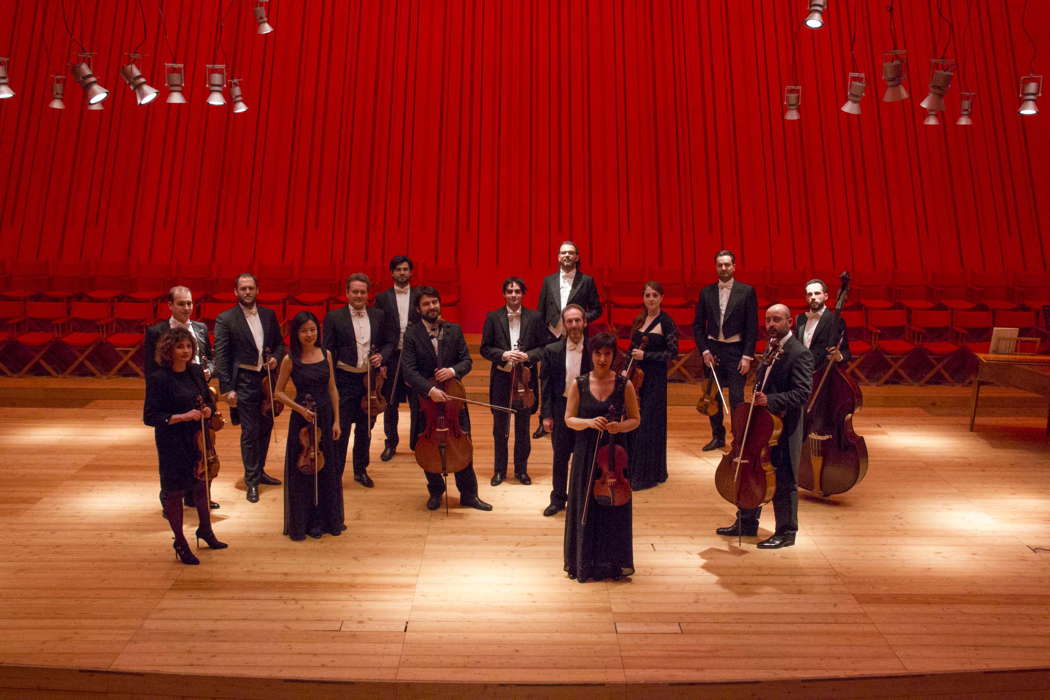
I Solisti Aquilani in 2018
Vivaldi's Seasons were joined by other seasons, from another era as well as from another hemisphere, composed two hundred and fifty years later: they are Las cuatro estaciones porteñas by Astor Piazzolla, in which the Argentine musician describes the feeling of passing time for the inhabitants of Buenos Aires. There are explicit reference to Vivaldi, whose Seasons were rediscovered towards the middle of the last century. Written between 1965 and 1970, the Estaciones were composed as separate pieces, conceived by Piazzolla for the quintet of which he was bandoneonist. They are one of the best examples of nuevo tango, with echoes of classical music and jazz. The twenty-five-minute piece was performed in Luis Bacalov's violin and string orchestra transcription, written for Sonig Tchakerian's solo violin – she also performed it on 1 July.
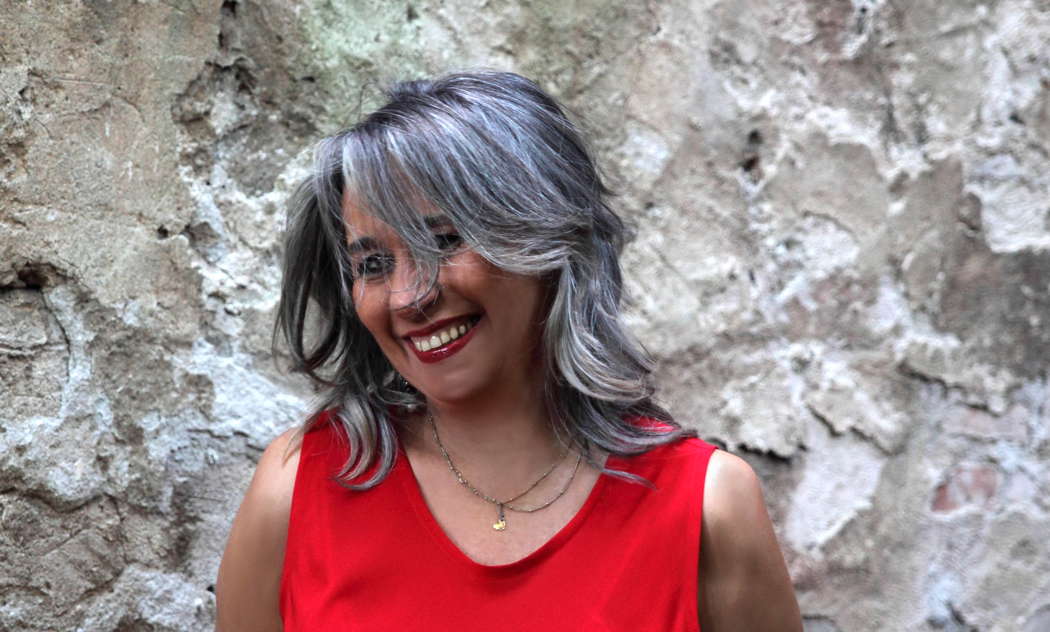
Sonig Tchakerian in 2020
Again, the work is very dramatic and responds to Bacalov's style: his opera Estaba la Madre was a great success at Teatro dell'Opera di Roma in 2005.
There was warm applause.
Copyright © 3 July 2021
Giuseppe Pennisi,
Rome, Italy



